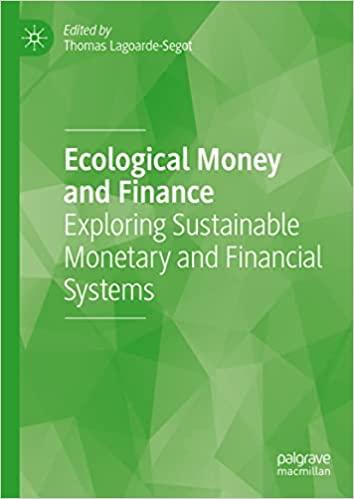Question
This is a more difficult but informative problem. James Brodrick & Sons, Incorporated, is growing rapidly and, if at all possible, would like to finance
This is a more difficult but informative problem. James Brodrick & Sons, Incorporated, is growing rapidly and, if at all possible, would like to finance its growth without selling new equity. Selected information from the companys five-year financial forecast follows.
| Year | 1 | 2 | 3 | 4 | 5 |
|---|---|---|---|---|---|
| Earnings after tax ($ millions) | 100 | 138 | 178 | 242 | 300 |
| Capital investment ($ millions) | 175 | 300 | 300 | 380 | 590 |
| Target book value debt-to-equity ratio (%) | 150 | 150 | 150 | 150 | 150 |
| Dividend payout ratio (%) | ? | ? | ? | ? | ? |
| Marketable securities ($ millions) | 200 | 200 | 200 | 200 | 200 |
| (Year 0 marketable securities = $200 million) |
a. According to this forecast, what dividends will the company be able to distribute annually without raising new equity and while maintaining a balance of $200 million in marketable securities? What will the annual dividend payout ratio be? (Hint: Remember sources of cash must equal uses at all times.)
This is a more difficult but informative problem. James Brodrick & Sons, Incorporated, is growing rapidly and, if at all possible, would like to finance its growth without selling new equity. Selected information from the companys five-year financial forecast follows.
| Year | 1 | 2 | 3 | 4 | 5 |
|---|---|---|---|---|---|
| Earnings after tax ($ millions) | 100 | 138 | 178 | 242 | 300 |
| Capital investment ($ millions) | 175 | 300 | 300 | 380 | 590 |
| Target book value debt-to-equity ratio (%) | 150 | 150 | 150 | 150 | 150 |
| Dividend payout ratio (%) | ? | ? | ? | ? | ? |
| Marketable securities ($ millions) | 200 | 200 | 200 | 200 | 200 |
| (Year 0 marketable securities = $200 million) |
a. According to this forecast, what dividends will the company be able to distribute annually without raising new equity and while maintaining a balance of $200 million in marketable securities? What will the annual dividend payout ratio be? (Hint: Remember sources of cash must equal uses at all times.)
I have no clue what I'm doing wrong. I've tried several formulas and keep getting this problem wrong.
Step by Step Solution
There are 3 Steps involved in it
Step: 1

Get Instant Access to Expert-Tailored Solutions
See step-by-step solutions with expert insights and AI powered tools for academic success
Step: 2

Step: 3

Ace Your Homework with AI
Get the answers you need in no time with our AI-driven, step-by-step assistance
Get Started


